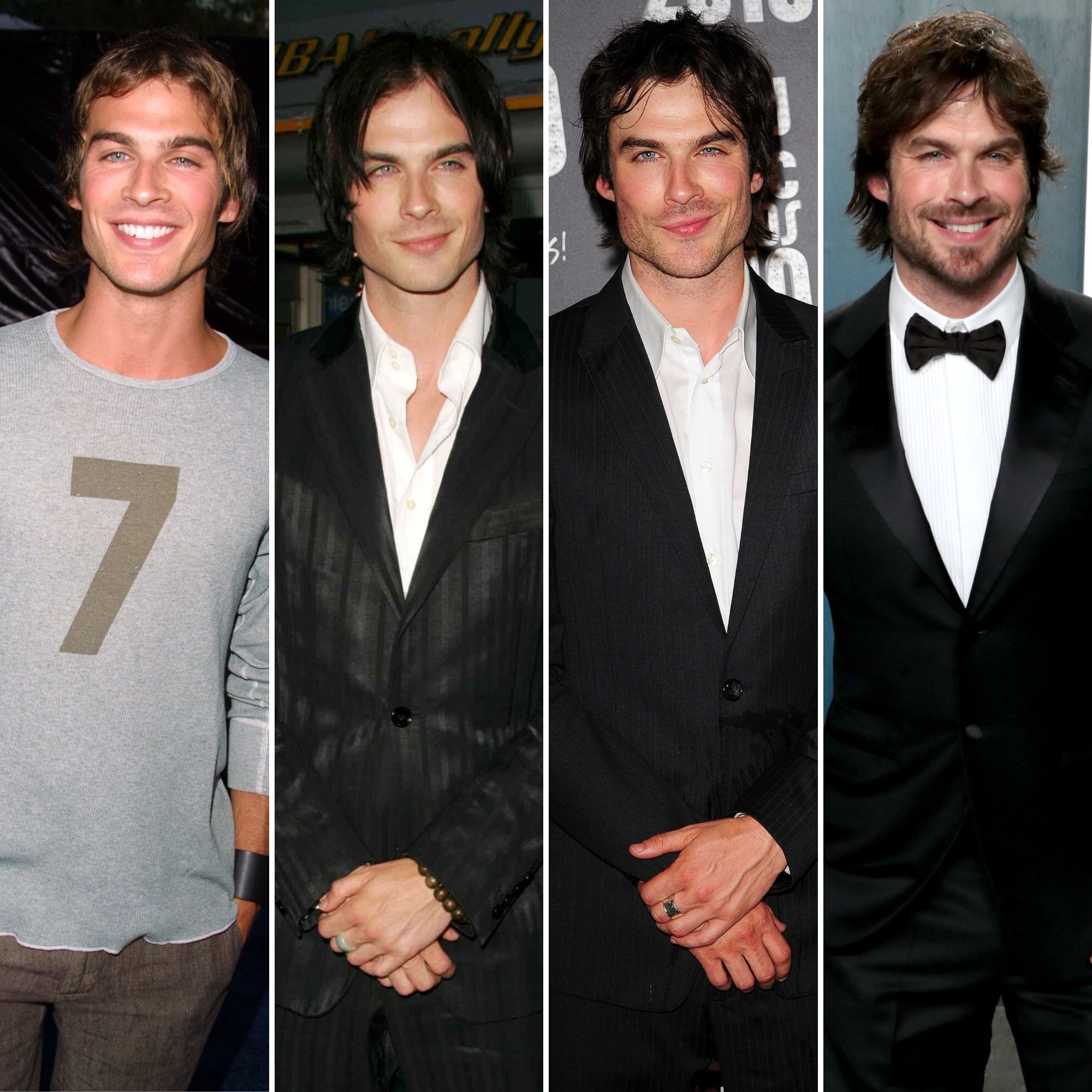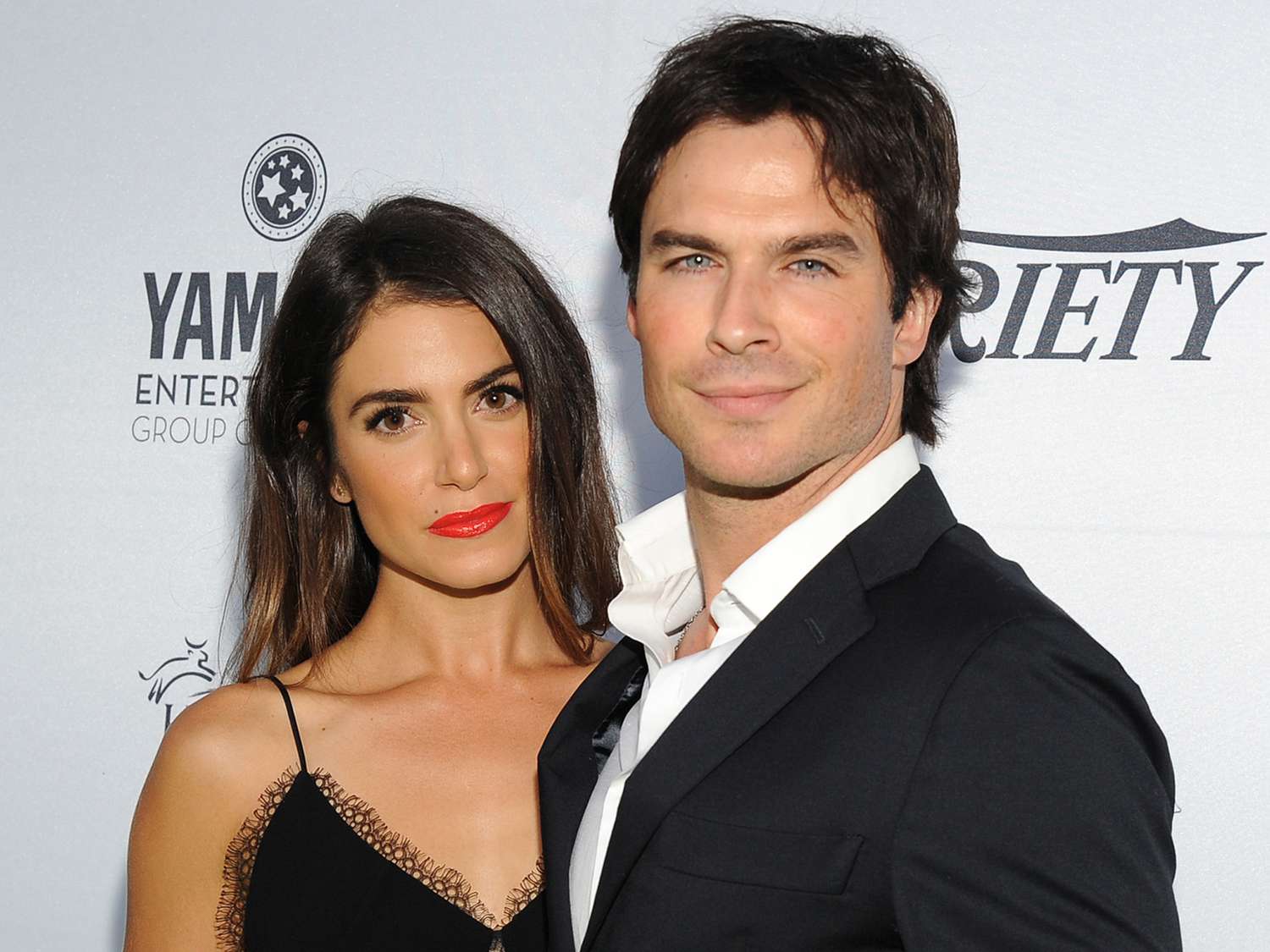When we think about truly memorable stage appearances, certain names and roles just stick with us. It's almost as if some performances become part of the very fabric of theatre history, shaping how we see classic works and what we expect from actors. Think about it, the name "Ian" comes up in so many interesting discussions, whether it's about characters who leave a lasting mark, or authors whose words move us, or even, you know, the way sounds come together in language. And when that name is paired with a theatrical moment of great power, it really stands out.
One such moment, for sure, involves the highly regarded actor Ian McKellen and his portrayal of King Edward II. This was in Christopher Marlowe's play, a work that asks big questions about power, about love, and about what happens when a ruler just doesn't fit the mold. It's a role that, quite frankly, demands someone with a deep understanding of human feelings, and McKellen, well, he certainly brought that to the stage.
His performance as Edward II was more than just acting; it was, in a way, a defining moment for many who saw it. It showed how a classic story, written centuries ago, could still speak so clearly to modern times, especially when someone with McKellen's skill stepped into the part. We're going to take a closer look at what made this particular show so special, and why, even now, people talk about it with such respect.
- Michael Cole Net Worth
- Mc Lyte Net Worth
- Mellody Hobson Net Worth
- Net Worth Of Shannon Beador
- Chet Hanks Net Worth
Table of Contents
- Ian McKellen: A Brief Look at a Life in Performance
- Christopher Marlowe's Edward II: The Play Itself
- Ian McKellen's Edward II: A Performance That Made History
- The Play's Enduring Relevance
- People Also Ask
Ian McKellen: A Brief Look at a Life in Performance
Biography
Sir Ian Murray McKellen, born in Burnley, Lancashire, England, has had a truly remarkable career on stage and screen. From a young age, he showed a real talent for acting, something that would, in fact, shape his entire life's work. He went to Bolton School and then to St Catharine's College, Cambridge, where he was already quite involved in university theatre productions. It was clear even then that he had a special gift for bringing characters to life.
After university, McKellen started his professional acting journey, and it didn't take long for him to become a respected figure in British theatre. He joined various repertory companies, honing his skills and taking on a wide range of parts. His work with the Royal Shakespeare Company and the National Theatre really cemented his place as a leading actor of his generation. He was known for his powerful voice, his expressive face, and his ability to make even the most complex characters feel real and relatable. You know, he just had that something extra.
Over the decades, McKellen has taken on countless roles, from Shakespearean heroes and villains to modern figures in film and television. He's received many awards and honors for his contributions to the performing arts, including a knighthood for his services to drama. His career shows a deep love for storytelling and a constant desire to explore what it means to be human through the characters he plays. He's really, honestly, a legend in the field.
- Talulah Riley Net Worth
- Thomas Hearns Net Worth
- Tommy Wiseau Net Worth
- Leon Thomas Net Worth
- Buddy Valastro Net Worth
Personal Details
| Detail | Information |
|---|---|
| Full Name | Sir Ian Murray McKellen |
| Date of Birth | May 25, 1939 |
| Place of Birth | Burnley, Lancashire, England |
| Nationality | British |
| Occupation | Actor |
| Known For | Extensive stage work, Gandalf in "The Lord of the Rings," Magneto in "X-Men" |
| Awards | Numerous, including Tony Awards, Olivier Awards, Golden Globe Award nominations, Academy Award nominations |
Christopher Marlowe's Edward II: The Play Itself
Historical Roots and Themes
Christopher Marlowe's "Edward II" is a historical play, and it tells the story of the English king Edward II, who ruled from 1307 to 1327. Marlowe wrote this play sometime around 1592, and it draws heavily from historical records of the time. The play explores a rather difficult period in English history, focusing on the king's downfall. It's not just a recounting of events, though; it really digs into the ideas of power, of what makes a good ruler, and what happens when personal desires clash with the duties of a king. It's pretty heavy stuff, actually.
One of the central themes that runs through the play is the idea of a monarch's personal life affecting their public duties. Edward II, you see, shows a strong preference for his favorites, especially Piers Gaveston, and this really upsets the powerful nobles in his court. This preference, which is often seen as a romantic attachment, creates a lot of tension and, in some respects, weakens his rule. The play, therefore, touches on themes of love, loyalty, betrayal, and the harsh realities of political life. It asks us to think about how much a ruler's personal choices can shape the fate of a nation, and that's a question that, you know, still feels relevant today.
Marlowe's writing is known for its strong language and its willingness to explore challenging subjects. "Edward II" is no different. It presents a king who, in many ways, is unsuited for the crown, more interested in his personal relationships and pleasures than in governing his country. This leads to conflict, to rebellion, and ultimately, to a rather tragic end for the king. It’s a play that, quite simply, doesn't shy away from showing the darker sides of human nature and political ambition.
The Character of Edward II
The character of Edward II himself is a complex figure, and that's part of what makes him so interesting to actors and audiences alike. He is, to be honest, a king who struggles with the expectations placed upon him. He inherits the throne from a strong father, Edward I, and finds himself ill-equipped for the demands of leadership. He craves companionship and affection, perhaps more than he desires the burdens of state. This yearning for personal connection, particularly with Gaveston, sets him apart from the traditional image of a powerful, stoic monarch.
Edward's refusal to let go of Gaveston, even when it means alienating his wife, Queen Isabella, and the most powerful lords in his kingdom, is a central part of his character. This stubbornness, this almost childlike insistence on having his own way, leads him down a very difficult path. He is, in a way, a tragic figure, a man who seems to be caught between his own nature and the heavy weight of his royal duties. He desires simple pleasures and genuine affection, but his position as king makes such desires impossible to fulfill without great cost.
The play shows Edward's journey from a somewhat frivolous ruler to a man stripped of everything, facing a truly grim fate. His vulnerability, his moments of despair, and his eventual suffering make him a character that, arguably, draws both sympathy and frustration from the audience. Portraying such a figure requires an actor who can show both the king's weaknesses and his fleeting moments of strength, someone who can make us feel for a man who, frankly, makes a lot of bad choices. That's where a performer like Ian McKellen really shines.
Ian McKellen's Edward II: A Performance That Made History
The Prospect Theatre Company Production
Ian McKellen's portrayal of Edward II is most famously linked to the Prospect Theatre Company's production, which first opened in 1969. This company was known for its innovative approaches to classic plays, and this particular staging was no exception. It brought a fresh perspective to Marlowe's work, making it feel very much alive for contemporary audiences. The director, Toby Robertson, worked closely with McKellen to shape a vision for the play that would resonate deeply.
The production toured quite a bit, gaining significant attention and praise wherever it went. It played in various venues, including the Edinburgh Festival and then in London, before even making its way across the Atlantic to Broadway. This widespread exposure meant that a lot of people got to see McKellen's work, and it helped to establish his reputation as an actor of immense talent and range. It was, in fact, a very important stepping stone in his career, showing what he could do with a complex leading role.
The staging itself was, from what people say, quite striking. It often used minimal sets, which put the focus squarely on the actors and Marlowe's powerful words. This simple approach meant that the emotional intensity of the play, and the performances within it, could really come through. It was a production that, in some respects, stripped away distractions, allowing the audience to truly connect with the characters and the story's core themes. It was, you know, theatre at its most raw and compelling.
McKellen's Portrayal: What Made It Special
What made Ian McKellen's Edward II so special, people often ask? Well, it was a combination of things. He brought a remarkable depth to the character, showing Edward not just as a weak or foolish king, but as a human being with real feelings, real desires, and real pain. He managed to capture the king's vulnerability and his almost childlike need for affection, even as his kingdom fell apart around him. This made Edward, in a way, much more relatable than he might otherwise seem.
McKellen's performance was also praised for its emotional range. He could shift, seemingly effortlessly, from moments of royal dignity to outbursts of frustration, from tender affection to utter despair. This ability to show such a wide spectrum of feelings made Edward a very three-dimensional figure. Critics and audience members often talked about how he made the character's suffering feel incredibly real, especially in the play's later, more brutal scenes. It was, basically, a masterclass in showing human emotion on stage.
Furthermore, McKellen's portrayal highlighted the romantic aspect of Edward's relationships, particularly with Gaveston, in a way that was both clear and, at the time, quite bold for a mainstream production. He didn't shy away from the play's implied themes of same-sex love, presenting them with a sensitivity and honesty that was, quite frankly, ahead of its time for many audiences. This added another layer of depth to the performance, making it not just a historical drama, but also a piece that spoke to broader discussions about identity and acceptance. It was a very powerful statement, really.
The Impact and Legacy
The impact of Ian McKellen's Edward II was, quite honestly, significant. It solidified his reputation as one of the leading actors of his generation, capable of tackling complex classical roles with great skill. The performance received widespread critical acclaim, earning him awards and nominations, and it helped to bring Marlowe's play to a wider audience. Many theatre historians and enthusiasts still consider it a benchmark for portraying the role of Edward II. It's almost legendary, in a way.
Beyond McKellen's personal success, the production also had a lasting effect on how Marlowe's "Edward II" was viewed. It helped to bring the play out of the shadow of Shakespeare, showing that Marlowe's work had its own distinct power and relevance. The production's willingness to explore the themes of love and power, and its rather frank presentation of Edward's relationships, also contributed to broader conversations about sexuality in art and society. It was, you know, a piece of theatre that sparked discussion.
Even decades later, people who saw McKellen as Edward II still talk about it with a certain awe. It became one of those performances that defined an era of British theatre, showing what could be achieved when a brilliant actor met a compelling play. It's a testament to the lasting power of live performance, and how one actor's interpretation can leave an indelible mark on cultural memory. For anyone interested in the history of theatre, or just great acting, this performance remains a key point of reference. You can learn more about Christopher Marlowe's Edward II and its historical context through various resources.
The Play's Enduring Relevance
Themes That Still Speak to Us
Even though "Edward II" was written centuries ago, the themes it explores are, honestly, still very much alive today. The play looks at the struggle between personal desires and public duty, a conflict that, you know, many people can relate to, whether they are kings or just everyday folks. It shows how personal relationships, especially those that go against societal expectations, can cause a lot of trouble and even lead to downfall. This idea of societal pressure versus individual happiness is something we still talk about quite a bit.
The play also touches on the corrupting nature of power and the dangers of unchecked ambition. The nobles in the play, driven by their own desire for influence, are willing to go to extreme lengths to remove Edward from the throne. This portrayal of political maneuvering and betrayal feels, in a way, timeless. We see similar struggles for power and control playing out in various forms even now, in the year 2024. It reminds us that human nature, in some respects, doesn't really change all that much.
Furthermore, the play's exploration of identity and acceptance, particularly concerning Edward's affections, continues to resonate. In a world that is still figuring out how to be more open and accepting of different kinds of love and relationships, Marlowe's play, especially through interpretations like McKellen's, feels surprisingly modern. It asks us to consider what happens when a person, especially someone in a position of authority, dares to live authentically, even if it goes against the norms of their time. It's a pretty powerful message, if you think about it.
Why This Performance Still Matters
So, why does Ian McKellen's Edward II still matter, you might ask? Well, it's because it's a shining example of how classical theatre can be brought to life with a fresh perspective and deep emotional honesty. It showed that these old stories aren't just dusty relics; they can, in fact, speak directly to our own experiences and concerns. McKellen's performance, quite simply, made Edward II feel like a real person, not just a historical figure from a book. It made his struggles feel immediate and real.
The production also served as a kind of cultural touchstone, helping to push boundaries in how certain themes, like same-sex relationships, were presented on the mainstream stage. It wasn't just a play; it was, in a way, a moment that contributed to a larger conversation about social change and acceptance. The courage of the production and McKellen's performance helped pave the way for more open and honest portrayals in theatre that followed. It definitely left a mark.
For anyone who loves theatre, or who is interested in the power of acting, McKellen's Edward II remains a legendary performance to study and appreciate. It shows what happens when an actor truly inhabits a role, bringing every bit of their skill and understanding to bear. It reminds us that great art can challenge us, move us, and help us see the world, and ourselves, a little more clearly. You can learn more about acting techniques on our site, and link to this page about the history of theatre for more insights.
People Also Ask
What year did Ian McKellen play Edward II?
Ian McKellen first took on the role of Edward II in Christopher Marlowe's play with the Prospect Theatre Company in 1969. The production then went on to tour and played in various locations, including London and Broadway, during the early 1970s. It was a very busy time for him, actually.
What was special about Ian McKellen's portrayal of Edward II?
McKellen's portrayal of Edward II was special because he brought a deep human understanding to the character, showing Edward's vulnerability and his complex inner life. He also presented the king's relationships, particularly with Gaveston, with a sensitivity and honesty that was quite groundbreaking for the time. It really made the character feel very real, you know.
Is Marlowe's Edward II a true story?
Christopher Marlowe's "Edward II" is a historical play, meaning it is based on the actual life and reign of King Edward II of England. While it draws from historical events and figures, like all historical dramas, it also takes some creative liberties for the sake of storytelling and dramatic effect. So, it's based on truth, but it's also, in a way, a work of art.
Related Resources:



Detail Author:
- Name : Annetta Vandervort
- Username : murray.kaleb
- Email : ybosco@toy.info
- Birthdate : 1988-03-21
- Address : 1062 Lucienne Stream Suite 413 Wiegandport, TN 78403
- Phone : +1-602-243-0429
- Company : Jaskolski PLC
- Job : Gluing Machine Operator
- Bio : Animi sequi qui nemo accusantium ea aut sed. Occaecati ipsam dignissimos quam exercitationem aut. At aut quasi ut rem culpa at. Voluptatum cum et totam impedit similique repellendus repellendus.
Socials
twitter:
- url : https://twitter.com/beattym
- username : beattym
- bio : Commodi eos autem et ut explicabo voluptatem occaecati. Id dolores odit modi nostrum sit.
- followers : 1443
- following : 729
tiktok:
- url : https://tiktok.com/@melyna_beatty
- username : melyna_beatty
- bio : Ea animi reiciendis deleniti ipsum. Nemo est officiis error et.
- followers : 874
- following : 1945
facebook:
- url : https://facebook.com/melyna_xx
- username : melyna_xx
- bio : Modi et et inventore porro ut. Modi voluptate qui nobis soluta eum labore.
- followers : 1331
- following : 2758